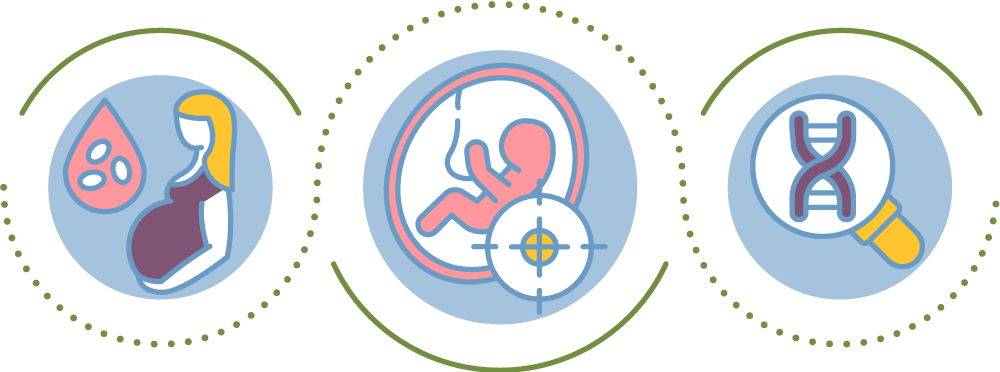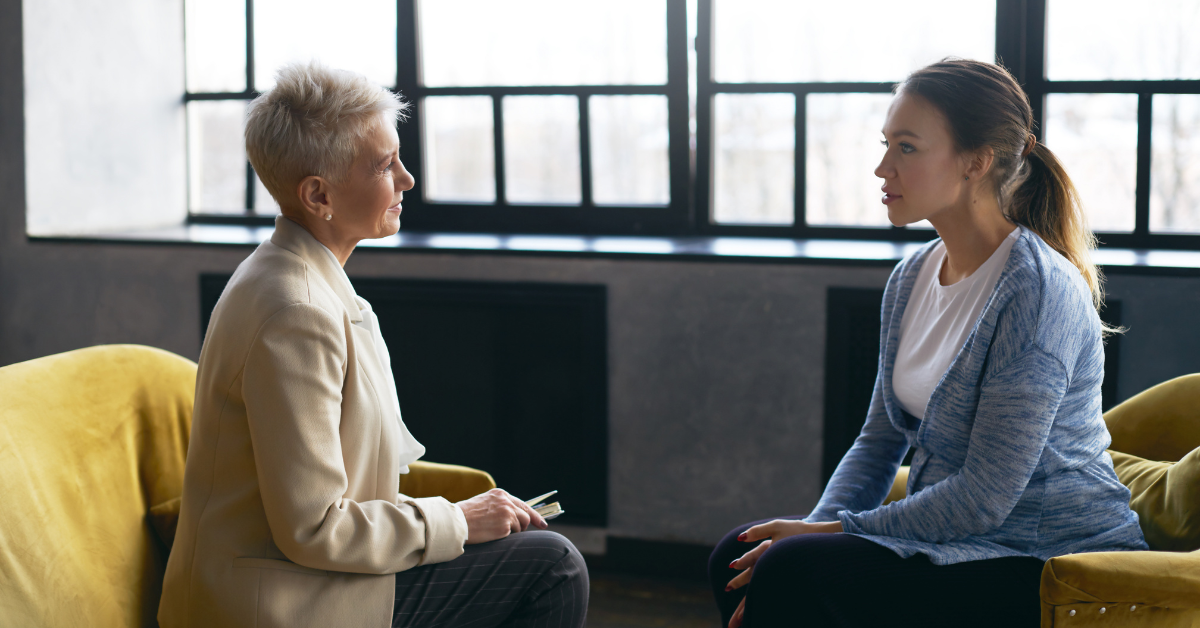An important decision facing parents-to-be is whether or not to have prenatal testing conducted before or during pregnancy. For many, these tests provide a welcomed view into a baby’s development and ease worries about the baby’s health. Of course, while they offer no guarantee of a healthy baby, prenatal testing may identify potential pregnancy complications and certain genetic disorders.
What are genetic disorders?
A genetic disorder is a disease caused by a change in the normal DNA sequence.
- Aneuploidy – any condition in which there are extra chromosomes (trisomy) or missing chromosomes (monosomy). Down syndrome, Patau syndrome, Edwards syndrome and Turner syndrome are among the most common chromosomal abnormalities.
- Inherited disorders – any number of conditions caused by mutations to the genes.
In most cases, both parents must carry the same gene to have an affected child. Common inherited disorders include Sickle cell disease, Cystic fibrosis and Tay-Sachs disease.
There are two types of prenatal tests for genetic disorders, screening and diagnostic tests, available to pregnant women.
Prenatal screening tests
These prenatal screening tests can quantify the risk of having a baby with specific disorders.
1. Carrier screening is done on parents using a blood or tissue sample swabbed inside the cheek. These tests determine if a person carries a gene for certain inherited disorders. Carrier screening can be done before or during pregnancy.
2. Prenatal genetic screening tests are conducted with blood tests and ultrasound exams. They screen for aneuploidy and defects of the brain, spine, abdomen, heart, and facial features.
- First-trimester screening includes a maternal blood test and ultrasound exam and is conducted between 10-13 weeks of pregnancy. The tests assess the risk of chromosomal abnormalities such as Down syndrome or Edward syndrome or congenital disabilities such as heart problems.
- Second-trimester screening is done between 15-22 weeks of pregnancy. It includes a “quad” blood test, measuring four substance levels in the maternal blood, and an ultrasound exam. These screen for neural tube defects such as spina bifida, congenital disabilities of the brain, spine or spinal cord, and chromosomal disorders. First- and second-trimester screening results can be combined to provide greater accuracy.
- Cell-free DNA screening can be performed starting at ten weeks of pregnancy. It uses a small amount of DNA that is released from the placenta into the maternal bloodstream. This sample is used to screen for Down syndrome, Patau syndrome, Edwards syndrome, and problems with the number of sex chromosomes.

With any testing, false-positive results and false-negative results are possible. A test result that shows there is a problem when one does not exist is called a false-positive result. A screening test result that shows there is not a problem when one does exist is called a false-negative result.
Prenatal diagnostic tests
Prenatal diagnostic tests can show, with as much certainty as possible, whether an aneuploidy or specific inherited disorder exists. These tests are performed on cells from the fetus or placenta obtained through amniocentesis or chorionic villus sampling (CVS).
- Amniocentesis
Amniocentesis is a diagnostic test usually done between 15-20 weeks of pregnancy but can be performed up until birth. During this diagnostic test, an ultrasound is used to guide the procedure, and a very thin needle is used to withdraw a small amount of amniotic fluid. There is a minimal chance of pregnancy loss with amniocentesis. Leakage of amniotic fluid and slight bleeding can occur after amniocentesis. In most cases, both stop on their own. - Chorionic villus sampling (CVS)
During chorionic villus sampling (CVS), sample tissue is taken from the placenta. The main advantage of having CVS over amniocentesis is that CVS is done earlier than amniocentesis, typically between 10-13 weeks of pregnancy. The chance of miscarriage with CVS is slightly higher than the chance of miscarriage with amniocentesis. - Preimplantation genetic diagnosis
For parents-to-be using in vitro fertilization (IVF), there is an increased risk of a genetic or chromosomal disorder. Preimplantation genetic diagnosis is conducted on the embryo before it is transferred to the uterus to test for genetic disorders and mutations. Once an embryo tests negative, it may then be transferred.
Test results
While most diagnostic tests are negative, or normal, it is still possible that a genetic disorder may be present. Diagnostic tests provide conclusive results only for the specific disorder that was tested for. If a diagnostic test result is positive, the disorder has been detected. Your provider will explain the results and offer guidance about your choices and options. This may include a referral to a specialist to help you better understand the disorder, possible treatments and what care may be needed for the child.
Testing at Welia Health
Prenatal genetic testing is available at Welia Health. If you choose this testing, your blood will be screened for the most common genetic disorders and chromosomal abnormalities. The standard panel will indicate your carrier status for 29 hereditary disorders outlined in ACOG/ACMG* guidelines. It will also screen your baby for chromosomes 21, 28, 13, X and Y (gender).
* American College of Obstetricians and Gynecologists/American College of Medical Genetics and Genomics
Should you consider prenatal testing?
It is your choice whether to pursue prenatal testing, and your personal beliefs and values may influence you. In most cases, parents-to-be have questions and need more information before making this decision.
To learn more about genetic testing, visit Natera.com, then talk to your Welia Health provider to discuss your options.














